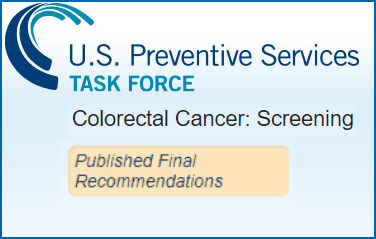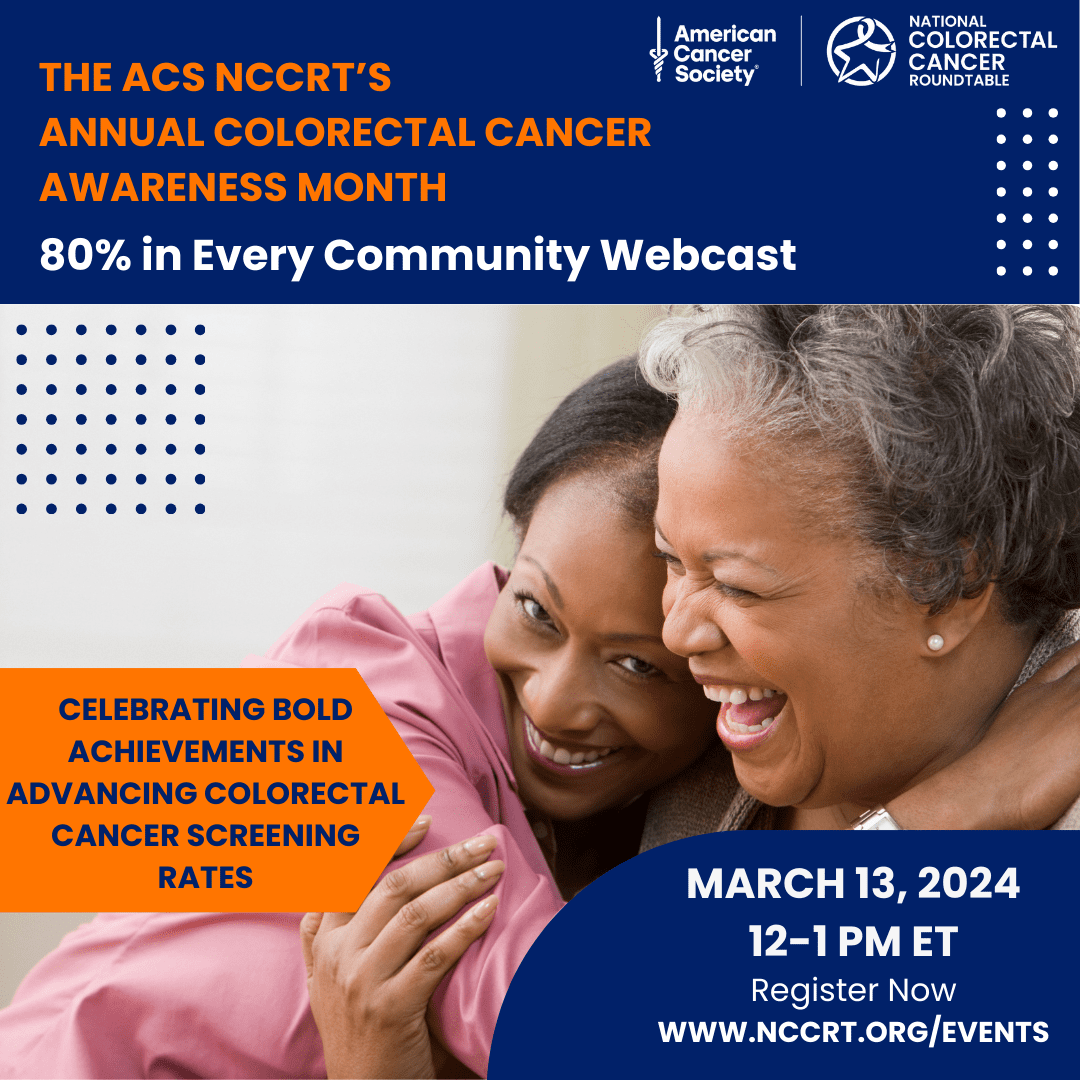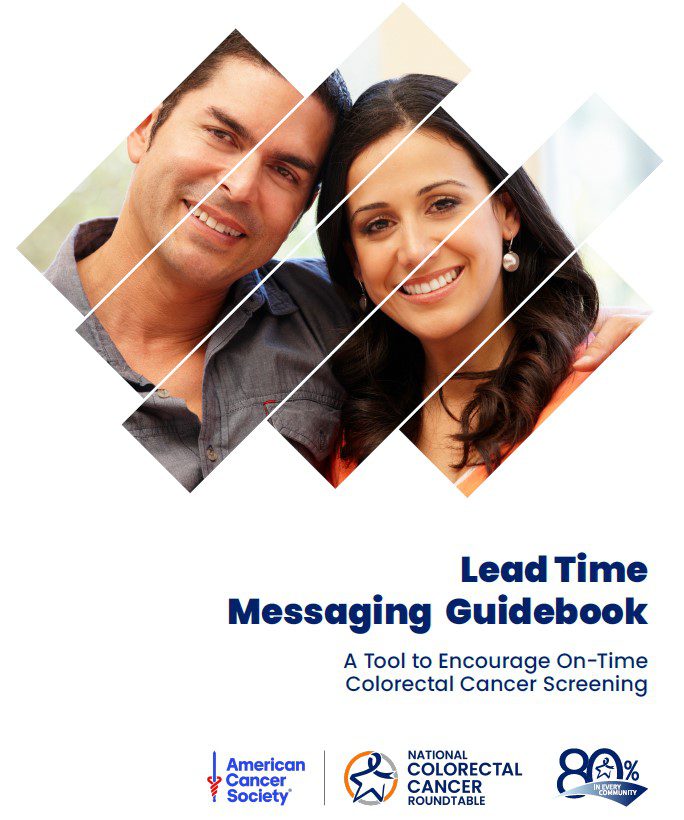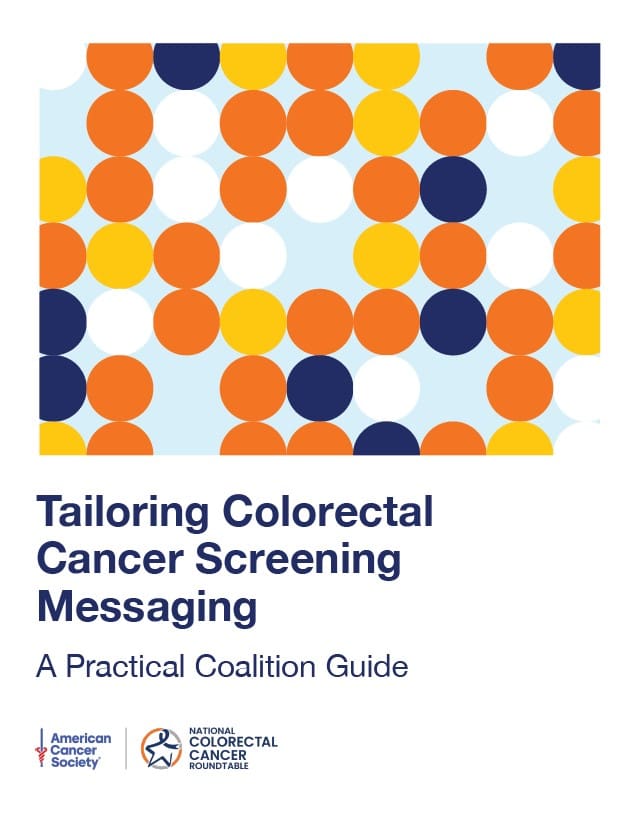Screening for Colorectal Cancer: US Preventive Services Task Force Recommendation Statement

Screening for Colorectal Cancer: US Preventive Services Task Force Recommendation Statement
The US Preventive Services Task Force (USPSTF) makes recommendations about the effectiveness of specific preventive care services for people at average risk and with no signs or symptoms of the specific disease or condition under evaluation. Recommendations are assigned a letter grade (A, B, C, or D grade or I statement) based on the strength of the evidence and the balance of benefits and harms of a preventive service. Costs of services are not considered in the evaluation.
In 2016, the USPSTF released a new “A” grade Final Recommendation Statement for colorectal cancer screening, which recommends screening for colorectal cancer starting at age 50 and continuing until age 75 years with one of several screening strategies. One of the primary differences from the 2008 recommendation is the addition of computed tomography (CT) colonography and multitargeted stool DNA (FIT-DNA) to the list of screening strategies.
Evaluation: The USPSTF is comprised of volunteer members who are nationally recognized experts in prevention, evidence-based medicine, and primary care. The USPSTF bases its recommendations on the strength of the evidence and the balance of benefits and harms of a preventive service. This recommendation statement was also published in the peer-reviewed journal JAMA.
Permissions: Made publicly available online by the US Preventive Services Task Force.
Publication date: June 2016
Post date: September 15, 2017
Contact: Submit comments, questions, and suggestions via web form.
Explore More

2024 National Colorectal Cancer Awareness Month Webcast
The 2024 National Webcast celebrated national achievements and to hear the latest state of the field updates that inform the ACS NCCRT's work.

2023 Lead Time Messaging Guidebook
This Guidebook is intended to provide you with information and tools to motivate individuals at average and heightened risk for CRC to discuss screening prior to the recommended screening age. Our belief is that this will increase the likelihood that they will prioritize getting screened on-time for CRC.

Tailoring Colorectal Cancer Screening Messaging: A Practical Coalition Guide
This step-by-step guide is targeted at coalitions who are looking to make highly effective campaigns to increase colorectal cancer (CRC) screening rates in their communities, especially for those hardest to reach, illustrated by case studies.